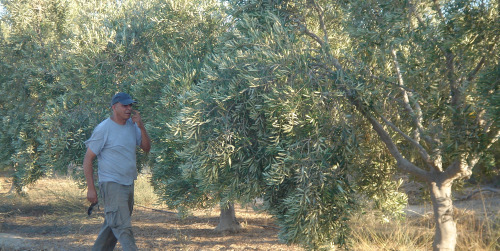Sustainable organic produce grown in Israel’s Negev desert is now being delivered to homes in the US courtesy of Negev Nectars.

“A land flowing with milk and honey” – that’s one of the most well-known passages from Exodus describing the Land of Israel and one of the first biblical expressions to make its way into the English language. Today, Israel is known for its abundant variety of high-quality food products made from these very ingredients.
While olive oil and dates from Israel are widely available in the United States at supermarkets and health food stores, a new American company called Negev Nectars – based in the Tri-State region – is making sure that the very “best of the sustainable best” from Israel will be delivered to American doorsteps, three times a year.
In a community-supported agriculture (CSA) style distribution network, Americans interested in enjoying Israeli-grown organic olive oil, herbal teas, honey, dates, chutneys and preserves, can satisfy their passion and eco-yearnings by subscribing to Negev Nectars’ CSA.
For $180 a year (the number translates to “life” multiplied by 10 in Jewish numerology), subscribers enjoy hand-selected foods that meet the rigorous standards and values of the most discriminating eco-aware individuals. Profits are channelled back to supporting the farms and people in Israel that practice sustainable farming. These practices benefit the Middle East region and ultimately the entire world.
A green gift from the Middle East
Initially, the boxes will be delivered before major Jewish holidays, but as the endeavour grows, Negev Nectars’ founders Marvin Israelow and Jeffrey Yoskowitz plan to expand deliveries to coincide with major seasons and holidays for people of other faiths as well.
It’s a healthy idea that sends the right message. When you support Negev Nectars, you’re putting your money where your mouth is, because the venture gives back to individuals and farms that are working in desert agriculture R&D and growing crops in harsh desert climates. These practices can and do reverberate across the entire Middle East.
“Most of the shelf-stable products I’m bringing over to the US are made from crops grown with brackish water, using the latest water saving technology to grow in the desert, and for the olive trees, using mainly a desert olive, the Barnea olive, which was discovered in the Sinai and yields more oil per fruit than most other varieties,” Yoskowitz tells ISRAEL21c.
While some people believe it’s essential to reduce the size of your ecological footprint by supporting no-impact or low-impact food – meaning that the food that you eat should be grown and produced locally – Yoskowitz sees no contradiction between maintaining these values and buying into a Negev Nectars’ CSA box.
Thinking global, acting locally
In the Northeast United States where Negev Nectars is setting up, there is no locally produced olive oil. “You can’t get sustainable organic olive oil here,” says Yoskowitz. In fact, he adds “you can’t get [locally grown] olive oil at all.” Despite that, “everyone’s’ still buying olive oil,” he points out.
Olive oil, a staple food in Mediterranean climates, is known for its health properties. It can reduce ‘bad’ cholesterol, while providing the good cholesterol our bodies’ need to function.
Negev Nectars’ founder Israelow is an American philanthropist who supports desert farming research out of Ben Gurion University in Israel. Yoskowitz is an environmental activist, filmmaker and writer. Both scoured Israel this summer to locate and select the best products for their CSA members.
“It’s one of the ways to get to know the land of Israel,” says Yoskowitz, who seems particularly pleased that Negev Nectars offers an olive oil produced from the biblical site Kadesh Barnea. It’s likely a spot where the Israelites camped along the Exodus route they took from Egypt to their Promised Land.












